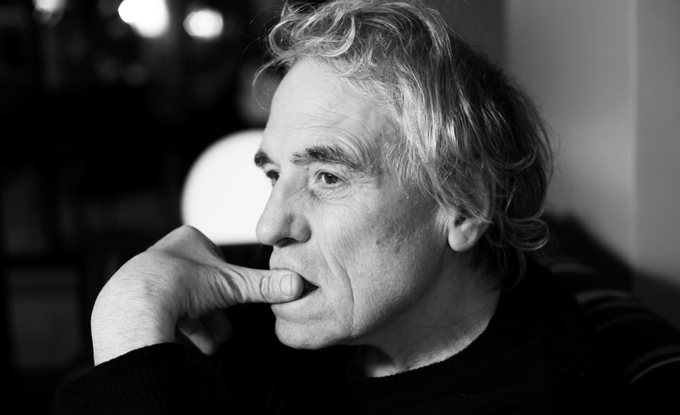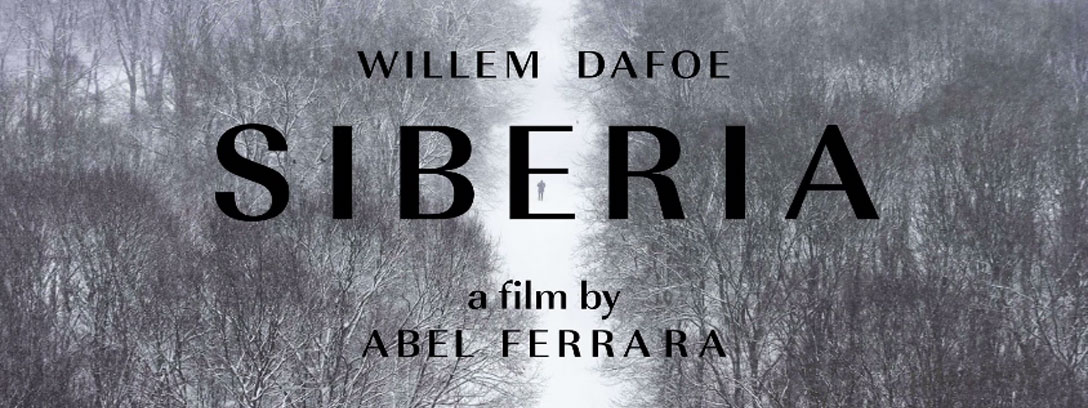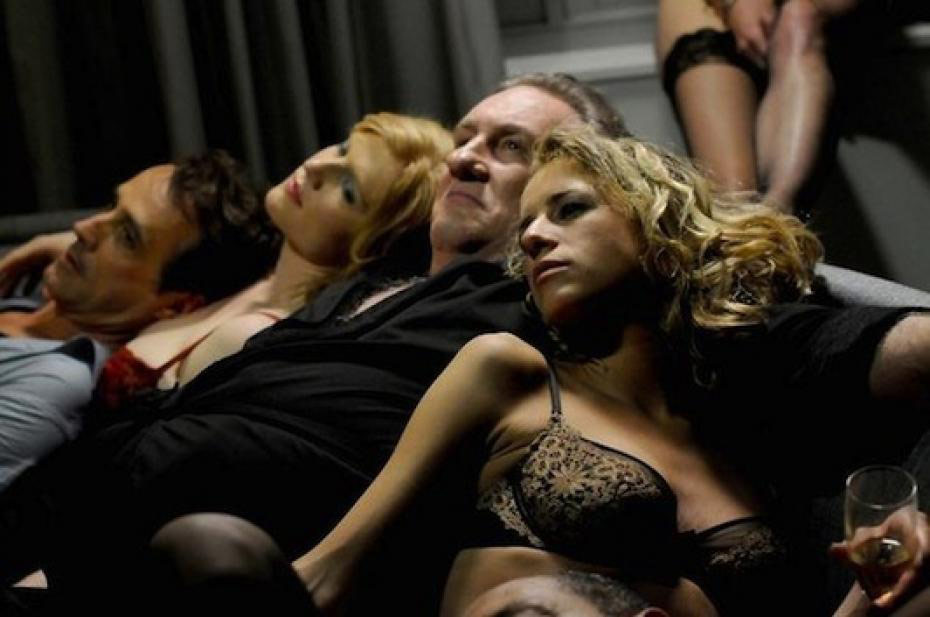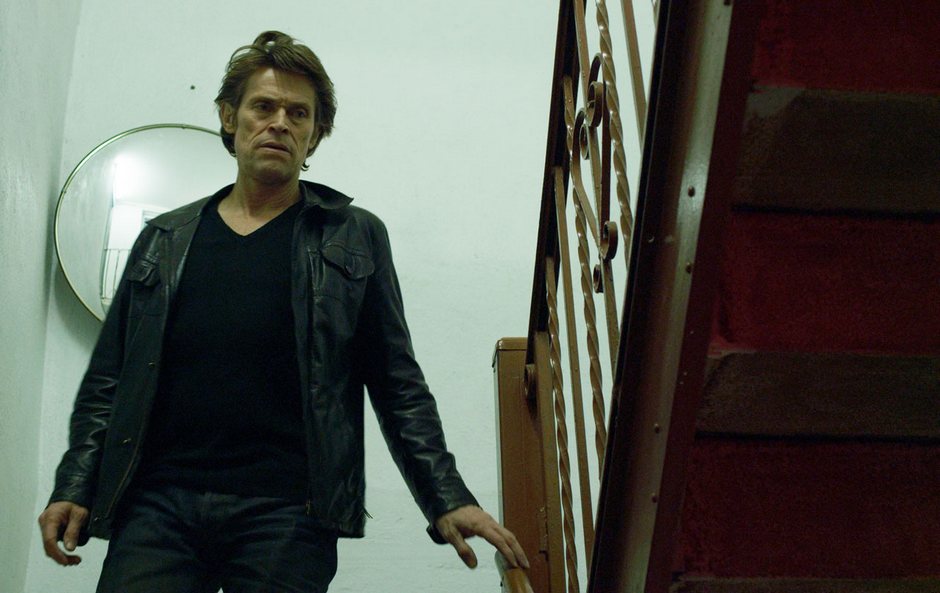
Abel Ferrara’s longstanding status as an outsider in the American independent film scene finds a way of being reaffirmed just about every time he makes a movie. Whether it’s trouble with releases, hustling for financing, legal problems, producing and shooting in Europe (he lives in Rome), controversies over censorship or, now with his next potential project, Siberia, this singular rebel has turned to Kickstarter to raise $500,000. Following in the footsteps of Spike Lee, crowdfunding makes sense for a director of Ferrara’s generation. He’s a well-established auteur, with a difficult production history that’s just as well documented. His fan base is largely dedicated and cinephilic. Somehow, the man never compromises his vision, no matter what the context of his films’ making is—and some of his boldest work has come in the last couple years with Welcome to New York and Pasolini.
Siberia is set to star Willem Dafoe, making it the fifth collaboration between him and Ferrara since first stepping on set together in 1998’s New Rose Hotel (also scripted by Chris Zois). Described on the Kickstarter page as “a subjective and objective journey into the subconscious,“ the film promises to be a completely new venture for the director. That is, if it’s even funded. As of writing this article, only nine days remain on the campaign, hardly enough to gather up the remaining $484,638 it needs to be greenlit. But I’m not sure that’s likely to stop Ferrara, who spoke with me on Skype with as much, if not more urgent passion, about this project as he did with me about Pasolini in 2013, just a few months before shooting began.

Adam Cook: Can you tell me about the genesis of the project? It starts with Carl Jung’s The Red Book?
Abel Ferrara: We gotta be careful to say it’s not based on The Red Book, it’s inspired by it. A lot of my work is inspired by Jung, but this more than most, because we’re really after the unconscious, and dreams. The Red Book is a little bit like [Pier Paolo] Pasolini’s Petrolio, where he’s writing in this dreamlike state, not trying to arrive a certain point but using that approach to reveal the unconscious. I wanna make a film about the language of dreams, a film about dreams as much as reality.
Cook: You have to find your way to do that through cinema, your own method.
Ferrara: Exactly. We’re not so open-ended that we’re just throwing dreams out one after another, it’s a story structure that came to me out of the blue, it’s outside the box for us. It takes place in iconic nature. It begins in Jack London wilderness, with snow, Willem [Dafoe] is working at a café, serving coffee to whoever comes by on dogsleds. Then we start realizing you’re privy to the reality of this but you’re also going inside Willem as a character. Instead of Willem playing a character, he very much is the character. Anyways, we begin in Jack London-ville, but the script moves kind of like an odyssey, something between The Odyssey and Alice in Wonderland, by dogsled. He ends up in mythical settings, not a specific time, he’s traveling into the desert, magical countryside.
Cook: Abstract, surreal sort of environments?
Ferrara: Yes, but it becomes a very real story of a journey this man takes through nature, with animals, through meeting mythical characters that are a part of his life and his unconscious.
Cook: Do you have any films or filmmakers in your head as inspiration?
Ferrara: Probably but I don’t know, I have a specific vision, I see a lot of it in my head. I was writing it with Chris Zois, who wrote Welcome to New York, and he’s a psychiatrist. It was good to have somebody like that to do this with. It’s really been all three of us, me, Zois, and Willem have all been actively involved in creating this. We’re basically just going into our own psyches.

Cook: Your films usually deal intensely with physical reality.
Ferrara: But it comes back to nature, our perspective on that. But we’re always trying to do something different.
Cook: You’re not unfamiliar with hustling, finding your own place in the industry. Was Kickstarter a pretty natural place to turn?
Ferrara: Yeah, it’s an opportunity, I’m glad for the platform. We can just put our ideas up there and express what we’re trying to do and how we’re going about doing it. Working the net for money is a little bit outside our thing, we’re private people, but the dream of film being financed by the people who are going to see it seems so simple but it’s a revolutionary concept, an act of independence. Films are typically funded by very few people, and very few companies. Films unfortunately need a pretty big investment, even small ones. It’s a group endeavor—I mean, I’m sure there are some people, what Gibson called ‘Garage Kubricks,’ geniuses who can do everything with themselves and a mirror, and can build everything or whatever, but I’m not one of them. [Laughs]. I need the actor, the writer, the DoP; we conceive these things in real time together.
Cook: Your experience with getting films funded, especially lately, has been fairly difficult?
Ferrara: It’s never been easy from day one. As long as we get them done we’re cool. You have to play every card and put your heart on your sleeve every time. Some are a little easier than others, but in the end it’s all the same.
Cook: This is going to be your fifth film with Willem Dafoe. Can you talk about that relationship?
Ferrara: When we started out we were doing it Hollywood style, he was just an actor in my movie. I knew him, we were both from Lower Manhattan. On New Rose Hotel we just shook hands and came out fighting. It developed after that, both living in Italy. As a director you’re always looking for the actor in different ways. My vision of the actor isn’t someone specific for one film but a collaborator who’s going to really understand what the game is. Willem would have been Pasolini whether he looked like him or not, we just connected on the idea. It’s a tradition: John Wayne and John Ford, [Marcello] Mastroianni and [Federico] Fellini, you know. It’s great if you can find the guy and keep it going. For the whole team. Each film develops into the next film. Siberia is somehow growing from 4:44 Last Day on Earth and Pasolini.

Cook: So the script was a collaboration with Chris Zois?
Ferrara: I had some kind of crazy opening just come to me, which makes up like the first fifteen pages or something. I don’t know where that came from. Then we just threw different ideas around. I didn’t know where these guys were gonna take it, but they got it right off the bat. Where we’re really going to go with it, though, we’ll find out. The screenplays don’t take you to where you’re going to go, the filmmaking process takes over and enriches it. That’s another thing about Kickstarter, usually you have to have everything locked down, every shot, every beat, but here we have room.
Cook: What’s the strategy if you don’t raise the 500k?
Ferrara: The movie is going to cost a lot more than 500,000. This is just for us to get our feet wet with the platform. I’m just saying let’s try it, I’m not over thinking it, let’s just go for it. But at the same time we are putting together the film in a traditional way, or as traditional as it can get with funding independent films, it’s different every time.
Cook: So you have some investors attached who are seeing how the Kickstarter campaign goes?
Ferrara: Yeah, we haven’t been abandoned yet. [Laughs].
Cook: Anything else you want to say?
Ferrara: Support it. We’re going to make an asskickin’ movie. Our ideas are very special to us, our films…The continuation of our work is key. If you like what we do, we’re going to take it to the next level.



